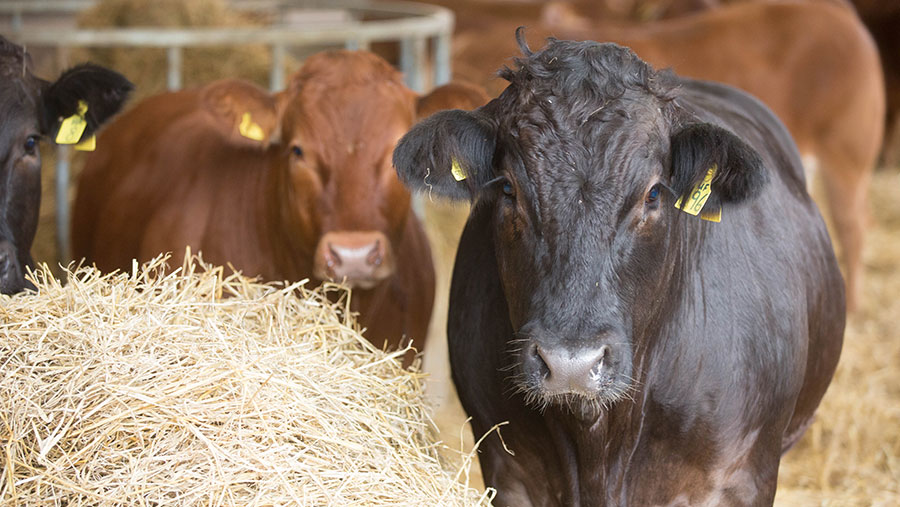Nitrate vulnerable zone penalty concern for Welsh TB herds
 © Tim Scrivener
© Tim Scrivener Welsh cattle farmers whose herds are under bovine TB movement restrictions risk breaching proposed new pollution control regulations.
The warning comes amid claims that Plaid Cymru politicians betrayed farmers by backing the new all-Wales nitrate vulnerable zone (NVZ) regulations – despite an earlier pledge to challenge the Welsh government on their introduction.
See also: Welsh government announces changes to NVZ rules
Welsh Conservative and shadow rural affairs minister Samuel Kurtz pointed out that if farmers are unable to move their cattle, their stocking rate could increase, pushing them over the proposed 170kg/ha nitrogen loading limit, which includes manure deposited by grazing animals directly on land or by spreading.
“Welsh farmers are doing all they can to adhere to the letter of the Welsh government’s regulations, be that bovine TB or NVZ regulations. However, the reality here is that by adhering to one set of regulations, farmers will end up contravening another,” he said.
“If your herd has a TB breakdown, then your stock number will inevitably increase. If this occurs, you’ll surpass the Welsh government’s derogation limit and face substantial penalties.”
The Welsh Conservatives accused Plaid Cymru of betraying Welsh farmers by backing the new regulations.
Plaid Cymru had initially opposed these, but a year ago they signed a co-operation agreement with Labour, which required them to drop that stance.
‘Bitter pill’
Welsh Conservative leader Andrew RT Davies described this as “the bitterest pill to swallow for farmers”.
“This (co-operation) agreement needs to be dropped, especially the NVZ regulations – it is not too late to use this opportunity to build goodwill with the sector as the Agriculture Bill begins its passage through the Senedd,” he insisted.
Last month, the government announced there would be a three-month delay to introducing the 170kg/ha annual holding nitrogen limit; it now will not come into force until April 2023.
A consultation is also set to be launched on a possible licensing scheme that could allow a farm business to apply for a licence for a higher annual holding nitrogen limit of 250kg/ha subject to crop need.
The Welsh government insists that established pollution control processes are in place for the management of holdings under TB restrictions.
It said it was committed to working with the farming community to improve water quality and air quality, and that would involve deploying the Water Resources Regulations 2021.
